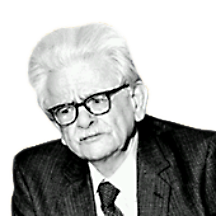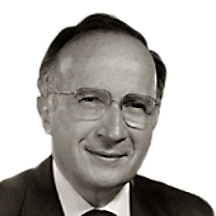Roald Hoffmann was born in Zloczow, Poland, in 1937. His father was killed during the Second World War, and he and his family became refugees, moving from one displaced person camp to another until 1949, when they eventually settled in the United States.
These are the words of Hoffmann, the Holocaust survivor, the scientist and the poet describing his youth: “The man for whom everything came easy came from an immigrant family and didn’t own a book until he was 16.”
Hoffmann studied chemistry at Columbia University, then at Harvard where he received his doctorate in 1962. He moved to Cornell University in 1965. His field of research dealt with the reactions between atoms and molecules, but he also became interested in philosophy, art and symbolism.
Roald Hoffmann was awarded the Nobel Prize in Chemistry in 1981 for his part in what became known as the Woodward-Hoffmann Rules. These rules provide a rational explanation for much of what occurs in organic chemistry. They make it possible to predict which chemical reactions can take place easily and which are impossible to achieve.
Hoffmann wrote in one of his books: “In the Jewish tradition from which I stem, there is a concept called ‘TIKUN OLAM’, which means that whatever is done by man can be changed. We are compelled by our nature to create, but we can choose to fashion the world according to the good or according to the evil that is within us.”
developed a system of laws and rules that is considered the most important conceptual development in theoretical organic chemistry.




